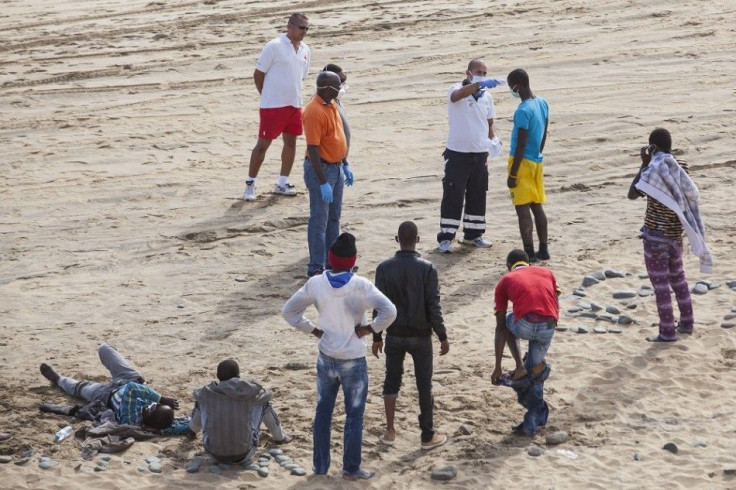European Union offers 2.4 billion euros aid to states for tackling migrant crisis: Italy and Greece to get maximum share

Offering relief to the migrant crisis, the European Union approved 2.4 billion euros (AU$3.67 billion) of aid for countries grappling with the rising numbers of migrants arriving on European shores. Interestingly, the announcement from Brussels came after British Foreign Secretary called for an immediate overhaul of EU legislation to ensure the return of migrants to their home countries to preserve EU living standards.
The aid will be for a period of six years with the largest share going to Italy at 560 million euros (AU$856 million) with Greece receiving 473 million euros (AU$723 million). The migrant crisis had raised tensions among EU countries on how to manage the influx of thousands of migrants from Africa and the Middle East.
Britain has been in news for the pressure it was facing from migrants who converged at France’s Calais and were trying to reach the U.K. via the Eurotunnel. In the process, many migrants died, and the disruptions affected traffic as well as business in both Britain and France.
The EU Commission has already paid Britain €27 million (AU$41 million) in emergency aid which it used for March. Now France will receive €20 million (AU$30 million) by end of August. “We are now able to disburse the funding for the French national program and the U.K. has already received the first disbursement of its funding," Natasha Berthaud, the European Commission spokeswoman said.
Fleeing poverty
Meanwhile, The Guardian contradicted the British Foreign minister Philip Hammond’s claim that migrants to Europe are propelled by economic considerations. Its report said the crisis is mostly a refugee problem. Noting that the assumption by Hammond or Theresa May that those trying to reach Europe are searching prosperity is false, it said, rather the migrants are fleeing poverty. But poverty is not considered a reason to move to another country by the international community.
The report said, in July, 62 percent of those who reached Europe by boats were from Syria, Eritrea and Afghanistan, according to the UN stats. Incidentally, these are the countries torn apart by war, oppression and religious extremism. In Syria’s case, all the three factors are at work. When the numbers of those coming from Darfur, Iraq, Somalia, and parts of Nigeria are also added, then the total proportion of migrants qualifying for asylum will be more than 70 percent.
The report also rejected the contention of the U.K. that it is more beneficent. Noting that Britain gives an asylum seeker only a meagre £36.95 (AU$79.20) to live on with no permission to work for supplementing that sum, it said France offers more with its £56.62 (AU$121.5) a week. What Germany and Sweden paying the migrants is only fractionally less than Britain, the report reminded.
(For feedback/comments, contact the writer at feedback@ibtimes.com.au or let us know what you think below.)





















